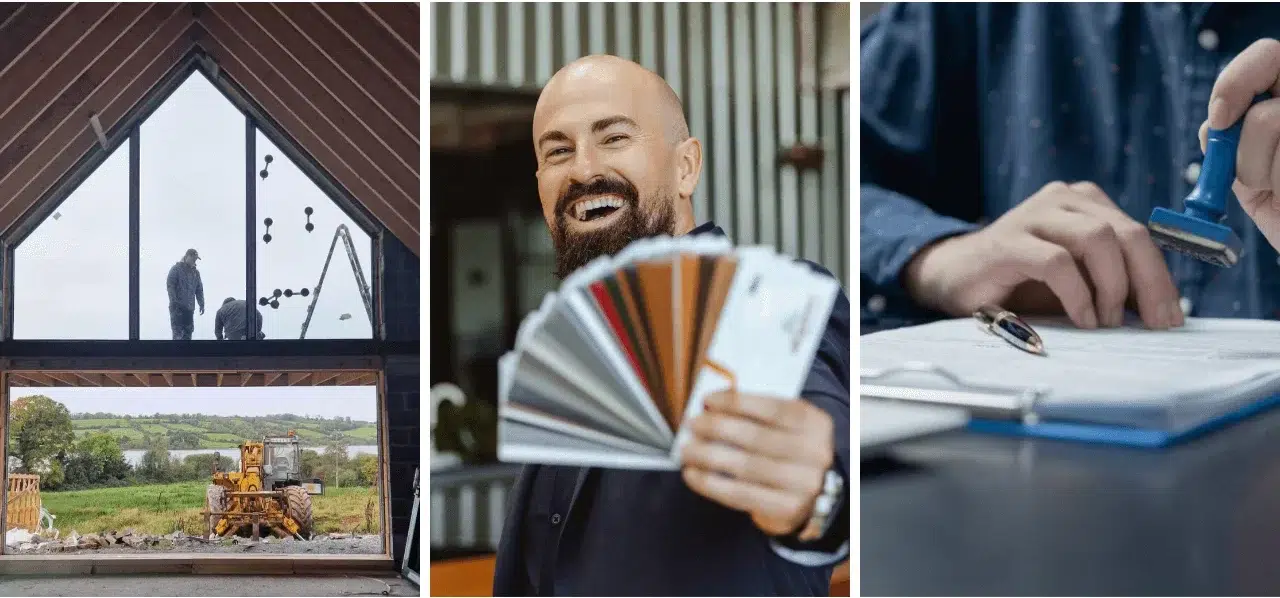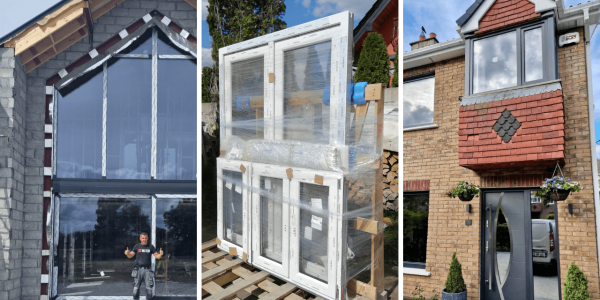When choosing new windows for your home or planning their replacement, you focus mainly on their construction material, energy efficiency, burglar resistance class, air permeability or acoustic properties. When analysing these parameters, you may overlook another important aspect — the validity and safety of the installation. The FENSA certificate is the confirmation that fitting has been carried out correctly and in accordance with UK building regulations. What is it, and what do you need to know about it?
What is FENSA?
FENSA is an acronym for Fenestration Self-Assessment Scheme and stands for window and door joinery own-assessment programme. The scheme was established in 2002, after the building regulations had been updated to include standards for the thermal performance/energy consumption of all installed glazing in doors or windows. The FENSA certificate for windows ensures that the installation company complies with the regulations and that the glazing itself meets the thermal performance standards set by FENSA. Since 1st of June 2014, the FENSA certificate has also been proof that the warranty provided by your installer is insured.
In summary, the FENSA certificate indicates that the installer has replaced the homeowner’s windows and/or doors with products that:
- are energy efficient
- comply with current building regulations
- are registered with the local authority.
Important: FENSA applies only to replacements of external windows and doors in existing residential buildings. It does not cover repairs, sash-only replacements, or installations in new builds, conservatories, porches, and similar structure.
Why is the FENSA certificate needed?
The first reason you need a certificate for windows is to ensure your property is compliant with…. Replacing windows without the correct documents and permits can result in a fine or even having to remove the new windows. The FENSA certificate is proof that the work has been carried out in accordance with building requirements and standards. This translates directly into building safety. After all, you need to remember that windows play an important role in the thermal and sound insulation of a house, as well as its overall safety. FENSA guarantees that the windows and doors have been installed to minimise the risk of heat leaks, draughts and structural damage. In addition, FENSA certified windows are designed to be intrusion-proof, providing an extra layer of protection for your home and family. That also helps to have complete documentation in case of any control, or to complete other certification related to insulation of the house.
It is also worth noting that the FENSA certificate for doors and windows can make a significant difference to the value of your property. Potential buyers are willing to pay more for a house that meets safety and energy efficiency standards.
Is the certificate for windows obligatory?
There are many questions about the FENSA certificate for windows and doors. The one we hear most often at Fenbro is related to the compulsory nature of the certificate. Is it actually necessary for every property in the UK to have one? Yes, provided that you installed your windows or doors after 2002, i.e. after the building regulations were amended. However, there are exceptions to this rule. Such certificates are not required for the installation of windows and doors in:
- new builds,
- extensions,
- conservatories,
- orangeries,
- conversions of any type, e.g., barn conversion,
- commercial premises,
- listed buildings,
- external porches,
- detached garages,
- sheds,
- caravans,
- mobile homes,
- and any repair work.
The second frequently asked question is when the FENSA certificate is needed. Here the situation is simpler. The document is mainly required when the property is being sold. Already at the stage of determining the details of the sale, an estate agent will ask you if you have installed or replaced doors and windows after 1 April 2022., If so, then you will be asked to present the FENSA certificate. Without one, you will not be able to proceed with the sales process. This is a result of estate agents not wanting to take risks and sell properties that do not meet construction regulations.
How to get the FENSA certificate?
The easiest way to obtain a double glazing certificate is to use an installation company registered with the window and door joinery self-assessment scheme. The accredited company will be required to provide the document. This is usually delivered within 2-4 weeks of installation. In most cases, you will not have to pay anything for the document, as, due to current legislation, most companies include issuing the FENSA certificate in their quote. However, if you lose your certificate for windows, you will have to pay an additional fee. If this is the case, you can order a duplicate through the official FENSA website — the fee is £25.
Remember that you can use the official website if you want to perform a FENSA certificate check for your chosen property. To see if the windows and doors in your building meet building regulations, simply enter your house number and postcode on the FENSA website.
How long is the FENSA certificate for front doors and windows valid?
FENSA guarantee is issued for a property and not for a specific person. This means that they are valid for the lifetime of the doors and windows. The certificate will not expire when the property is sold, which is why it is so important to pass it on to the new owner. Please also remember that it is proof of a covered warranty.
How to get a certificate for windows if the installation was carried out by a company or person who is not on the FENSA list?
The fact that an installation company or fitter is not registered on the FENSA list does not mean that they do not comply with the regulations, and you should not use their services. If the fitter you wish to use is not on the FENSA list, you can still obtain a certificate for windows.
If this is the case, the simplest way would be to request a certificate of installation from your nearest Building Control Department. In response, an official will visit your property to check the correct installation of the joinery, its specification and the tightness of the windows and doors. A positively completed FENSA inspection will allow you to obtain the described certificate. The cost will be around £180-260 for the official expertise, plus a further £25 for the issuing of the document itself.
What happens if the windows are not FENSA-certified?
FENSA regulations for windows are very extensive, so not having any certificate is quite a problem. But don’t panic when you find you can’t get it for your joinery — this problem can be easily solved! You still have two options.
The first is to apply to your local authority for a retrospective Building Regulations compliance certificate. This is issued on the condition that the building inspection confirms that the work carried out is correct and that the windows and doors meet the requirements. Otherwise, you may be asked to replace your joinery. The procedure of obtaining a retrospective Building Regulations compliance certificate takes about two months and involves a fee of between £300 and £400.
The second way is to take out civil liability insurance. You can use this option if the installation work was completed more than a year ago. This type of insurance will protect you against financial losses, once the local authority decides that the installation has not been carried out in accordance with the regulations and the double glazing needs to be replaced or removed. The cost of taking out liability insurance is between £80 and £500.
Are Polish windows compliant with FENSA standards?
Polish windows and doors are a common choice in England and Wales. Both individual customers and large investors order joinery at Fenbro. Our success can be attributed to a wide range of products on offer, top quality products and services, as well as attractive and competitive prices. But does our joinery comply with the FENSA regulations for windows? The answer to this question is: yes, it does! To confirm the validity of Fenbro windows and doors, you only have to get a certificate issued by the fitting company or the Building Control Department.
Compliance with the building regulations of a given country is extremely important.
The FENSA certificate is an excellent way to make sure that a house fully complies with these regulations and is safe for its occupants. It is also a mandatory document when you are selling your home. However, don’t worry if you don’t have it at the moment – with our instructions, you already know how to obtain the FENSA certificate for Polish windows from Fenbro.


